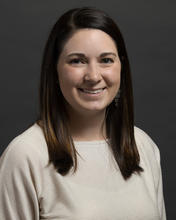Building Internal Capacity
Combining the technical science with outreach to create behavior change
Changing someone else's behavior can be challenging. Sometimes a person does things a certain way only because they do not have the knowledge or understanding that there is a different way of doing things or if they do maybe they’re not convinced. In Minnesota, there are 87 Soil and Water Conservation Districts (SWCDs), 42 Watershed Districts, and numerous environmental non-profits. With limited staff and funding, it can be difficult for these entities to produce materials, do outreach, and/or measure how much impact they have when it comes to behavior change around these issues.
In the Spring of 2022, we developed a network survey that was sent out to education and outreach staff and leaders at these organizations to gauge their input on educational materials that would be helpful to their work or their employees' work. There were 38 respondents to the survey. Of those respondents, 100% agreed that an information clearinghouse would in some way be helpful to their work and when asked what would be most helpful to their education and outreach efforts the top three answers were:
- Templates for handout materials
- Tools for audience analysis and engagement
- Educational materials for local and elected officials
From these results, the University of Minnesota Extension with support from the Extension Foundation developed the Watershed Engagement Programming (WEP) Hub. The WEP Hub is a clearinghouse of information on topics ranging from basic watershed science, meeting facilitation, measuring behavior change, and so much more. These resources are meant to help environmental entities save time and resources on developing and searching for materials for the general public. Some resources can be adapted for handouts at a local office or used as educational material for implementing new practices in an employee's skill set.
The WEP Hub relies on resource submissions from outside sources. Several ways to get involved include:
- Submit a resource to the Hub on a natural resource or outreach and education topic.
- Provide support in terms of donations of staff time to review document submissions
- Provide funding for website improvements
- Share our website with other natural resource educators
By supporting the WEP Hub you are making it easier for natural resources professionals to communicate with their audiences whether that is through a brief pamphlet handed out at a county fair or by helping them fine-tune their evaluation skills so that they are better able to report behaviors change and changes on the landscape. Our mission at the University of Minnesota Extension is to bring science to the public and help our audiences achieve their goals, this makes us uniquely qualified to host this content and help natural resource professionals develop their skills for education and outreach.
If you’d like to learn more about the WEP Hub or how to get involved please contact Anne Nelson at [email protected] or Britta Dornfeld at [email protected]
Contacts

Anne Nelson
Extension Educator
763-218-1476
Anne Nelson is an Extension Educator working for the University of Minnesota Extension with a focus on rural groundwater management. She works primarily with farmers and private well owners to manage and protect groundwater as a drinking water source. She works with nutrient management, irrigation management, and private well concerns.
Our list of advisors includes:
Kyle Weimann; Operations Manager at Stearns County SWCD
Kevin Strauss, Clean River Partners
Michelle Overholser; Supervisor, Chippewa SWCD and District Administrator, Yellow Medicine River Watershed District
Marcelle Lewandowski; Senior Research and Extension Coordinator, University of Minnesota Water Resources Center
Britta Dornfeld and Emily Kraeske, Source Water Protection Collaborative, Environmental Initiative
Support from The Extension Foundation and NTAE Grant